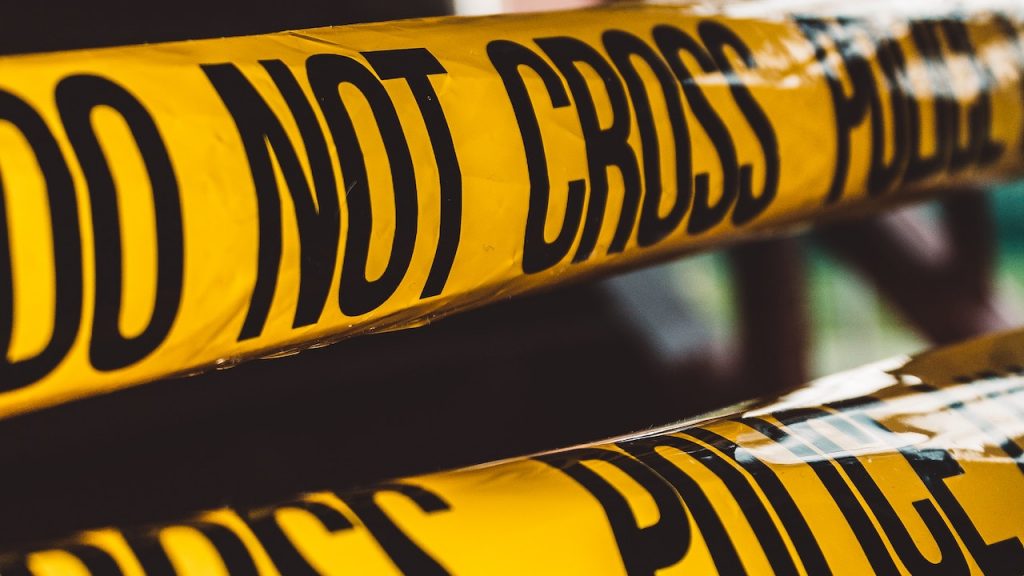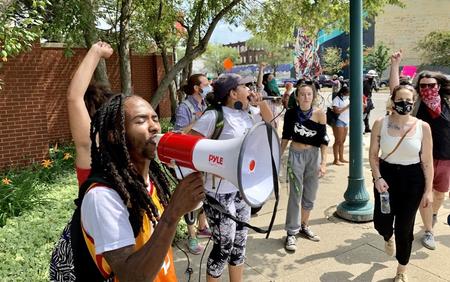Detroit Gun Violence Soars, But Evidence For Cause Is Lacking
Law enforcement officials — including Detroit Police Chief Daniel Craig — blame bail reform and early release for the rise in crime. But the picture may be more complicated than that.

Gun violence is soaring in Detroit.
Homicides in the city are up more than 30 percent and non-fatal shootings are up over 50 percent, compared to this time in 2019. But finding out why crime is up dramatically is a work in progress.
That doesn’t mean there hasn’t been speculation.
Click on the player above to hear WDET’s Russ McNamara on the dueling arguments for why crime has increased.
“It could be any number of reasons but it could be the anti-police rhetoric that’s permeating our country,” says Detroit Police Chief James Craig. “The fact that there’s bail reform and some individual being released, and frankly suspects feel emboldened.”
There’s a lot to unpack in that statement. But Craig certainly isn’t alone in that sentiment.
“The safest communities are not those with the most police or metal detectors or surveillance technology. Quite the opposite. They’re the ones with the most resources.” — Amanda Alexander, Detroit Justice Center
“There is a great amount of disrespect and hatred of police officers in our country right now,” says Matthew Schneider, U.S. Attorney for the Eastern District of Michigan. “And when people do not trust and they dislike the police that escalates tension in the community itself.”
But Detroit has a long history of racist cops and unjust policing practices. And remember, this latest round of protests started with the killing of George Floyd by a police officer in Minneapolis.
So what’s really happening?

Healthy distrust
There’s a healthy distrust of the authorities built into this community.
The city’s police force ended 13 years of federal oversight just four years ago. Following allegations of unconstitutional conduct, including excessive force and illegal detentions, the U.S. Department of Justice was forced to step in.
In “the poorest neighborhoods in any Black and brown city in this country, there’s always been an anti-police sentiment.” — Nakia Wallace, protest leader
Nakia Wallace is one of the organizers for the anti-police brutality protests in Detroit. She says the sentiment is nothing new.
In “the poorest neighborhoods in any Black and brown city in this country, there’s always been an anti-police sentiment,” Wallace says. “But what’s also been true is that the police have also had an anti-Black and brown sentiment.”
Blaming reform
So what about Chief Craig’s idea of bail reform and criminals allegedly being let out en masse sparking crime?
“We are absolutely seeing across the country where people are being released by judges into the community because of coronavirus are now back in the community committing violent crimes,” says U.S. Attorney Schneider.
But when asked for documents supporting that conclusion, Schneider demurred.

A spokesperson for the U.S. Attorney’s office did get back with me, but couldn’t provide Detroit-specific statistics. In other cities, it’s true: Some of those released have been arrested again. Mostly for property crimes and theft.
But Chief Craig specifically targeted bail reform and not just those released due to the pandemic.
Amanda Alexander is the founder and executive director of the Detroit Justice Center and Senior Research Scholar at the University of Michigan Law School. She explains how failing to pay a simple fine can devastate a family.
“A man who was in because his family couldn’t afford $1,000 to bail him out, and he was a caregiver for his four children, along with his partner, and he lost his job because he was in for a week and couldn’t report to work,” Alexander says. “And when his partner couldn’t find anyone to care for their four kids, she had to quit her job in order to stay home. That’s a family of six who went from two incomes to no income in the span of a couple of weeks because of the cash bail system.”
More Policing, More Investment?
A dramatic rise in gun violence does call for action. The Trump Administration has sent-in and reassigned more federal agents to Detroit, but they also did that late last year — and still crime rose.
Alexander has a different perspective on why crime is rising.
“For too long, we have equated public safety with police,” Alexander says. “The safest communities are not those with the most police or metal detectors or surveillance technology. Quite the opposite. They’re the ones with the most resources. They’re the ones with excellent schools and excellent amenities and intergenerational wealth.”
Covid-19 has exploited the underlying conditions of its victims. There’s no reason to think the pandemic hasn’t exposed the problems within society.
In this instance, poverty and inequity are underlying conditions and crime is the disease. If more policing is the treatment for crime, then equality and helping people break out of debt might be the vaccine.
Trusted, accurate, up-to-date
WDET is here to keep you informed on essential information, news and resources related to COVID-19.
This is a stressful, insecure time for many. So it’s more important than ever for you, our listeners and readers, who are able to donate to keep supporting WDET’s mission. Please make a gift today.
